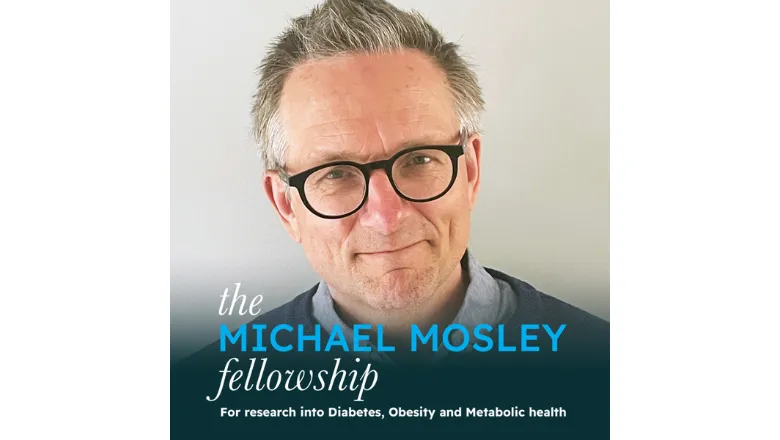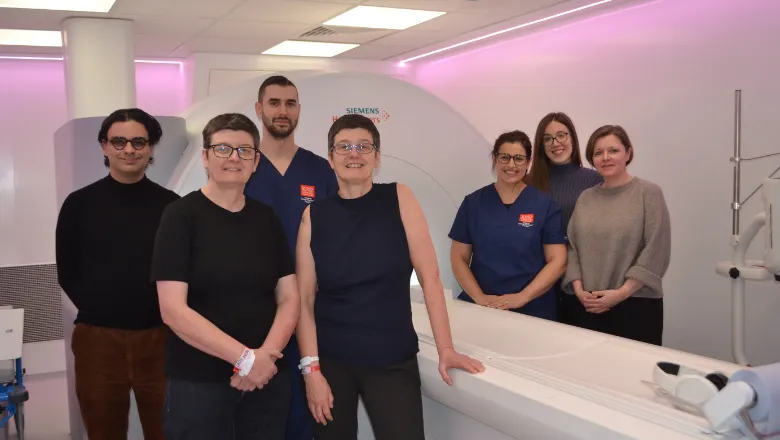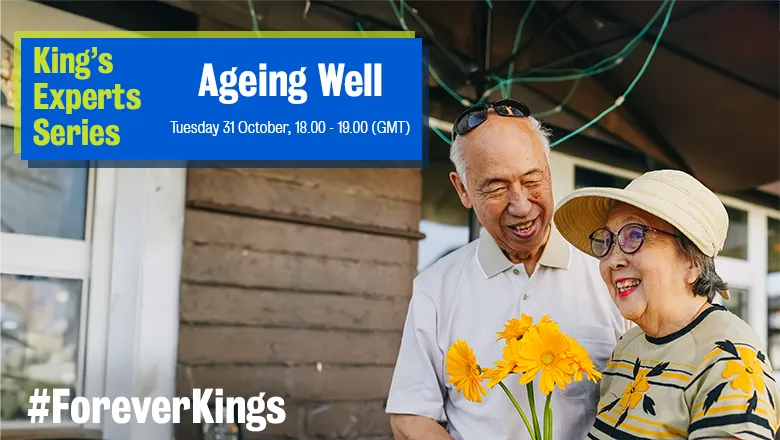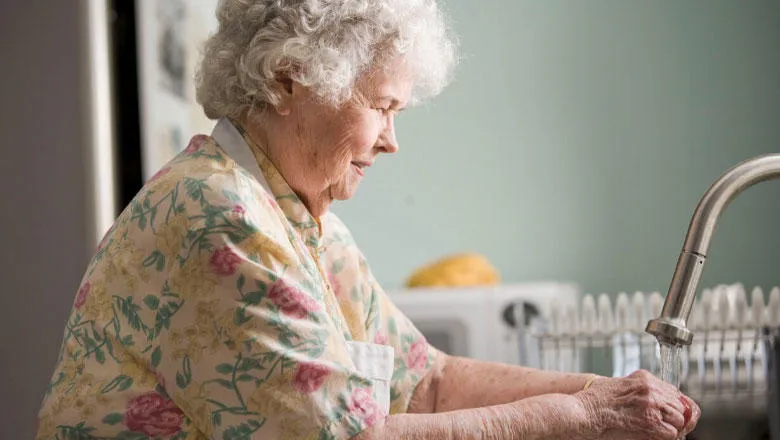
Professor Claire Steves
Professor of Ageing and Health
- Head of Department, Twin Research & Genetic Epidemiology
Research interests
- Ageing
- Mental Health
Biography
Claire is a Professor of Ageing and Health and the Clinical Director of TwinsUK, King’s College London. She is also a Consultant Geriatrician at Guys and St Thomas’s NHS Foundation Trust.
Claire is interested in how each one of us ages differently and uses population studies like TwinsUK to understand what underlies this variability. She works across health boundaries, interested in both physical and mental health and the intersections between them. She established that environmental factors are particularly important in understanding trajectories of ageing. This has led to focused work on the relationship between the microbiome and conditions of ageing, including cognitive ageing, frailty and multi-morbidity. Claire also leads a high profile Wellcome Longitudinal Population Study grant to expand our ability to contribute to health sciences, by using data linkage with health, educational and environmental records, and social and environmental scientists.
In 2020 she brought her clinical experience to the design of the Zoe Covid study app which reached over 4 million people, and since then has led research on the impact of COVID-19 infection itself and the pandemic overall on lived experience of the participants. She also is the longitudinal population study lead on the National Core Study of Health and Wellbeing which aims to understand the health, social and economic impacts of the COVID-19 pandemic including how the pandemic has affected older populations.
Claire has published more than 100 research articles in high impact journals and appears regularly in the media.
Research

Adapting Pulmonary Rehabilitation for People Living with COPD & Frailty
People with COPD and frailty can benefit from, yet face trouble completing pulmonary rehabilitation. BreathePlus will develop and test a new adapted approach.
Project status: Ongoing

Ageing Research at King's (ARK)
Cross faculty consortium addressing ageing and healthy longevity.

Centre for Ageing Resilience In a Changing Environment - CARICE
Welcome to the Centre for Ageing Resilience in a Changing Environment: CARICE

Structural and life course determinants of LGBTQ+ health inequalities
Leveraging King’s data and expertise to enhance understanding and move into action.
Project status: Ongoing

King’s MechanoBiology Centre (KMBC)
The King’s MechanoBiology Centre gives a common platform for researchers across different disciplines with complementary interests in mechanobiology

Safe and sustainable diets for a healthy body and mind (SSuDs)
This Research Interest Group on Safe and Sustainable Diets for a Healthy Body And Mind provides a unique opportunity for the King’s research community to address the challenges of safe and sustainable diets across a range of health outcomes
News
TwinsUK MRI study reaches major milestone with 1,000th twin scanned
The TwinsUK MRI study has passed the halfway mark by completing its 1,000th scan, building a major imaging dataset that will drive ageing research for years...

Advancing the future of research into metabolic health in memory of Dr Michael Mosley
To honour the memory of British broadcaster, author and science journalist, Dr Michael Mosley, a new clinical research fellowship will be established to help...

People from disadvantaged backgrounds have COVID-19 symptoms for longer
People from disadvantaged backgrounds are more likely to experience COVID-19 symptoms for longer, new research suggests.

International delegation visits King's as part of UK tour focused on ageing research and care
On 20 February, a delegation of clinical professors specialising in geriatric medicine from Japan, Taiwan and Korea visited researchers and clinicians at...

King's academics present their research at healthy ageing events in China
Researchers from King’s College London recently attended two events in China that shared insights into international strategies to promote healthy ageing and...

Twins MRI study celebrates 250 scans in first year
The Department of Twin Research and BMEIS has marked their first year of research collaboration using multi-organ MR imaging in twins for ageing research.

Researchers challenge focus on rural older adults in CMO's latest health report
New analysis challenges prevailing assumptions about the distribution of older adults in Chief Medical Officer (CMO) Chris Whitty’s latest annual report.

King's academics look into crystal ball in new future gazing sci-fi anthology
Researchers in AI from across three different faculties provided expert reflections on energy, healthcare and education in the near future

Daily fibre supplement improves older adults' brain function in just 12 weeks
A daily fibre supplement improved brain function in over 60s in just 12 weeks.

TwinsUK twins undergo first MRI Scan in study on healthy ageing
TwinsUK participants are the first pair of twins to be scanned at King’s as part of a unique study investigating early markers of disease and aging in...

Events

King’s Experts Series: Mind the Health Gap
Why do some people enjoy better health than others? Join our latest King’s Experts Series webinar to discover how King’s rich legacy in the field of...
Please note: this event has passed.

All Tomorrow's Futures: scientists meet sci-fi writers to invent possible futures
Immerse yourself in this unique fusion of insights, which will spark discussions about the implications for our future human experience.
Please note: this event has passed.

Inaugural Lectures: Professors Elisabeth Ehler & Claire Steves
Inspiring talks from two of our new professors about using microscopy in muscle structure and ageing resilience
Please note: this event has passed.

King's Experts Series: Ageing Well
The King’s Experts Series is a series of events exclusively for King’s alumni, this webinar will spotlight the work of King's ageing research.
Please note: this event has passed.
Features
In conversation with Stephen Oram and Professor Claire Steves: Imagining a future shaped by the gut microbiome
What happens when science fiction meets cutting-edge science? Writer Stephen Oram and Claire Steves, Professor of Ageing and Health at King’s College London,...

The biology of ageing, with Professor Claire Steves and Dr Carly Welch
As a population, we’re getting older. But what happens to our bodies at the biological level as we age? And is there anything we can do about it? For our...

Health policy priorities: What should the incoming UK government focus on?
Whoever takes up residence at Number 10 after the general election will have a bursting in-tray. What are the health priorities the next government should be...

King's contributes to pandemic response
Staff and students from across the King’s community are supporting efforts to combat the novel coronavirus (Covid-19) outbreak.

Why are the elderly more at risk of death from novel coronavirus?
Dr Claire Steves, Clinical Senior Lecturer, explores the particular susceptibility of older people to the novel coronavirus?

King's contribution to coronavirus response
King's academics and researchers are supporting ongoing research and conversation addressing the global outbreak of novel coronavirus (COVID-19).

Spotlight
ZOE COVID Study app: How King's researchers slowed the spread of COVID-19
On March 24th 2020, the ZOE COVID Symptom Study App was launched. Since then, it has more than 4 million users and is now the world’s largest ongoing study...

Research

Adapting Pulmonary Rehabilitation for People Living with COPD & Frailty
People with COPD and frailty can benefit from, yet face trouble completing pulmonary rehabilitation. BreathePlus will develop and test a new adapted approach.
Project status: Ongoing

Ageing Research at King's (ARK)
Cross faculty consortium addressing ageing and healthy longevity.

Centre for Ageing Resilience In a Changing Environment - CARICE
Welcome to the Centre for Ageing Resilience in a Changing Environment: CARICE

Structural and life course determinants of LGBTQ+ health inequalities
Leveraging King’s data and expertise to enhance understanding and move into action.
Project status: Ongoing

King’s MechanoBiology Centre (KMBC)
The King’s MechanoBiology Centre gives a common platform for researchers across different disciplines with complementary interests in mechanobiology

Safe and sustainable diets for a healthy body and mind (SSuDs)
This Research Interest Group on Safe and Sustainable Diets for a Healthy Body And Mind provides a unique opportunity for the King’s research community to address the challenges of safe and sustainable diets across a range of health outcomes
News
TwinsUK MRI study reaches major milestone with 1,000th twin scanned
The TwinsUK MRI study has passed the halfway mark by completing its 1,000th scan, building a major imaging dataset that will drive ageing research for years...

Advancing the future of research into metabolic health in memory of Dr Michael Mosley
To honour the memory of British broadcaster, author and science journalist, Dr Michael Mosley, a new clinical research fellowship will be established to help...

People from disadvantaged backgrounds have COVID-19 symptoms for longer
People from disadvantaged backgrounds are more likely to experience COVID-19 symptoms for longer, new research suggests.

International delegation visits King's as part of UK tour focused on ageing research and care
On 20 February, a delegation of clinical professors specialising in geriatric medicine from Japan, Taiwan and Korea visited researchers and clinicians at...

King's academics present their research at healthy ageing events in China
Researchers from King’s College London recently attended two events in China that shared insights into international strategies to promote healthy ageing and...

Twins MRI study celebrates 250 scans in first year
The Department of Twin Research and BMEIS has marked their first year of research collaboration using multi-organ MR imaging in twins for ageing research.

Researchers challenge focus on rural older adults in CMO's latest health report
New analysis challenges prevailing assumptions about the distribution of older adults in Chief Medical Officer (CMO) Chris Whitty’s latest annual report.

King's academics look into crystal ball in new future gazing sci-fi anthology
Researchers in AI from across three different faculties provided expert reflections on energy, healthcare and education in the near future

Daily fibre supplement improves older adults' brain function in just 12 weeks
A daily fibre supplement improved brain function in over 60s in just 12 weeks.

TwinsUK twins undergo first MRI Scan in study on healthy ageing
TwinsUK participants are the first pair of twins to be scanned at King’s as part of a unique study investigating early markers of disease and aging in...

Events

King’s Experts Series: Mind the Health Gap
Why do some people enjoy better health than others? Join our latest King’s Experts Series webinar to discover how King’s rich legacy in the field of...
Please note: this event has passed.

All Tomorrow's Futures: scientists meet sci-fi writers to invent possible futures
Immerse yourself in this unique fusion of insights, which will spark discussions about the implications for our future human experience.
Please note: this event has passed.

Inaugural Lectures: Professors Elisabeth Ehler & Claire Steves
Inspiring talks from two of our new professors about using microscopy in muscle structure and ageing resilience
Please note: this event has passed.

King's Experts Series: Ageing Well
The King’s Experts Series is a series of events exclusively for King’s alumni, this webinar will spotlight the work of King's ageing research.
Please note: this event has passed.
Features
In conversation with Stephen Oram and Professor Claire Steves: Imagining a future shaped by the gut microbiome
What happens when science fiction meets cutting-edge science? Writer Stephen Oram and Claire Steves, Professor of Ageing and Health at King’s College London,...

The biology of ageing, with Professor Claire Steves and Dr Carly Welch
As a population, we’re getting older. But what happens to our bodies at the biological level as we age? And is there anything we can do about it? For our...

Health policy priorities: What should the incoming UK government focus on?
Whoever takes up residence at Number 10 after the general election will have a bursting in-tray. What are the health priorities the next government should be...

King's contributes to pandemic response
Staff and students from across the King’s community are supporting efforts to combat the novel coronavirus (Covid-19) outbreak.

Why are the elderly more at risk of death from novel coronavirus?
Dr Claire Steves, Clinical Senior Lecturer, explores the particular susceptibility of older people to the novel coronavirus?

King's contribution to coronavirus response
King's academics and researchers are supporting ongoing research and conversation addressing the global outbreak of novel coronavirus (COVID-19).

Spotlight
ZOE COVID Study app: How King's researchers slowed the spread of COVID-19
On March 24th 2020, the ZOE COVID Symptom Study App was launched. Since then, it has more than 4 million users and is now the world’s largest ongoing study...

